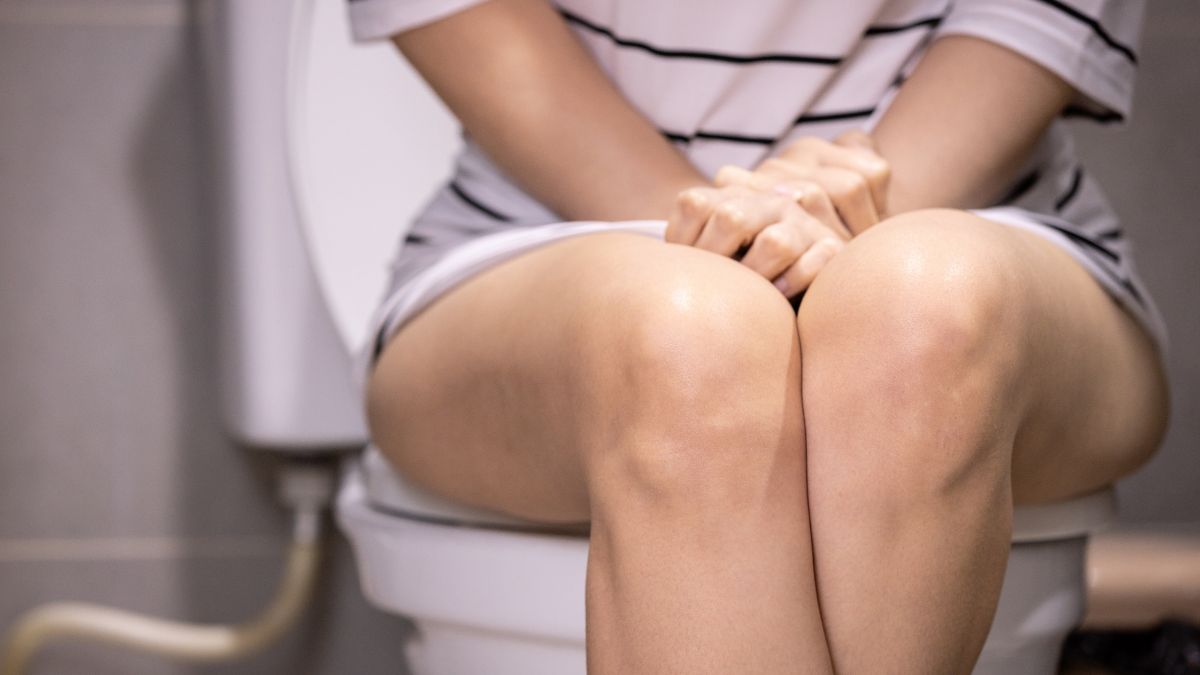
Peeing shouldn’t be painful—yet all too often it is. If you’ve found yourself wondering “Why does it burn when I pee?”, you’re not alone. Burning and pain during urination, known as dysuria, impacts up to 1 in 4 women in the U.S. each year and it can have a variety of causes, from infections to irritation and inflammation, according to Raj Dasgupta, MD, Chief Medical Advisor for Garage Gym Reviews. And while the discomfort can be distressing, “In most cases, once the cause of dysuria is identified, treatment can resolve the issue,” he says.
Why does it burn when I pee? A UTI may be to blame
According to a report in the journal American Family Physician, the inflammation of a urinary tract infection (UTI) is the most common cause of pain and discomfort during urination among women. Indeed, 83 percent of women with suspected UTIs experience painful urination to some degree, according to a Dutch study.
“The bacterial infection causes inflammation of the lining of the urinary tract, which causes redness, swelling and irritation,” explains Brynna Connor, MD, Healthcare Ambassador at NorthWestPharmacy.com. Other signs that a UTI is the cause of that burning sensation when peeing? You have to pee a lot, have a strong urge to urinate and/or have strong-smelling or cloudy pee.
Cranberry juice, cranberry supplements or d-mannose can ease discomfort due to mild UTIs, says Dr. Dasgupta. But he stresses that treating the underlying infection requires medical attention. “For UTIs, it’s really important to see a doctor within two to three days because, if left untreated, they can spread to the kidneys and cause serious damage,” he says. Your doctor can confirm the presence of a UTI with the help of urinalysis. And with antibiotic treatment, burning typically dissipates within one to two days.
Other reasons it may burn when you pee
As previously mentioned, dysuria can have a variety of causes. Other conditions that can lead to painful urination include:
Vaginal infections
“Vaginal infections like bacterial vaginosis (BV) or yeast infections can indeed cause burning and discomfort while urinating,” confirms Dr. Dasgupta. And as Dr. Connor notes, the infections can also produce symptoms such as vaginal discharge, itching and/or a fishy odor.
Once again, seeing a doctor ASAP is crucial if burning and other infection symptoms strike. “At your appointment, your doctor will ask about your symptoms and medical history, do a physical exam and take a vaginal swab to confirm the type of infection,” Dr. Dasgupta explains.
Treating painful urination caused by BV involves antibiotics, while antifungal creams, suppositories or pills are used to clear up yeast infections. With the right medication, symptoms should subside within three to seven days.
Sexually transmitted infections (STIs)
According to Dr. Dasgupta, a sexually transmitted infection (STI) such as genital herpes, gonorrhea or chlamydia triggers inflammation that can result in pain and burning when you pee. And sexually active individuals of any age can be vulnerable—especially from having unprotected sex. Findings in the journal Sexual Health reveal that rates of chlamydia and gonorrhea have climbed sharply in folks 55 and older since 2000. And a study in the journal BMC Infectious Diseases found that the prevalence of HSV-2, the virus responsible for genital herpes, was higher in women aged 45 to 49 than it was in younger women.
Symptoms besides painful urination can differ depending on infection. According to the American College of Obstetricians and Gynecologists, both gonorrhea and chlamydia can cause vaginal discharge and bleeding between periods. As for genital herpes, the Mayo Clinic lists symptoms such as pain or itching in the genitals and sores that develop on the vulva, vagina, buttocks, mouth and other areas.
Since untreated STIs can lead to long-term complications like infertility or chronic pelvic pain, Dr. Dasgupta advises seeking medical attention immediately if you experience painful urination and suspect an STI to be the cause. STIs like chlamydia, gonorrhea and herpes are diagnosed through testing urine samples or vaginal swabs. Depending on the infection, treatment with antibiotics or antiviral medications can resolve symptoms in less than a week.
Interstitial cystitis (IC)
Also known as bladder pain syndrome, IC is characterized by inflammation of the bladder. “The inflammation leads to exposed nerve endings that cause pain with bladder emptying,” explains Dr. Connor.
Additional clues of the condition: “All people with IC have bladder pain that gets better after urinating,” says Dr. Dasgupta. “Other common symptoms include the feeling like you need to urinate often during the day and night as well as having pain in the lower belly or around the area where urine leaves the body.” And while IC primarily affects the bladder, he notes that the pain can radiate to surrounding areas including the urethra, pelvic floor and groin.
IC is somewhat of a medical mystery: “Doctors do not know what causes it, but many suspect that it might be caused by abnormal changes in the lining of the bladder,” Dr. Dasgupta says. “Sometimes, IC happens on its own. Other times, it starts after a person has an infection, injury or surgery to the urinary tract, vagina, bladder, pelvis, back or buttock.”
There’s no definitive test for IC, so it’s typically diagnosed after other conditions have been ruled out. Doctors often use an exam called a cystoscopy to check the bladder for abnormalities and guide diagnosis and treatment. “Treatment options include medications, bladder training, physical therapy, dietary changes and surgery,” he notes. “Some women experience relief within weeks, while others may need more time to manage the condition effectively.” Discover how to soothe IC here.
Urethritis
Defined as inflammation of the urethra (urinary tube), urethritis is marked by painful urination, itching and discharge from the urethra, according to German researchers. “Commonly caused by infections such as UTIs or STIs, it can also be triggered by chemical irritants in products like scented soaps or deodorant tampons,” Dr Dasgupta notes.
Fortunately, treating the infections behind urethritis can relieve its symptoms. “If the issue is from irritation due to chemicals, avoiding those products is the key to healing,” Dr. Dasgupta asserts. He advises using gentle, fragrance-free products on delicate tissues in the pelvic area. Also smart: Skip douches entirely. Findings from Vanderbilt University of Medicine link douching to an increased STI risk. It can also increase your risk of yeast infections.
This content is not a substitute for professional medical advice or diagnosis. Always consult your physician before pursuing any treatment plan.




